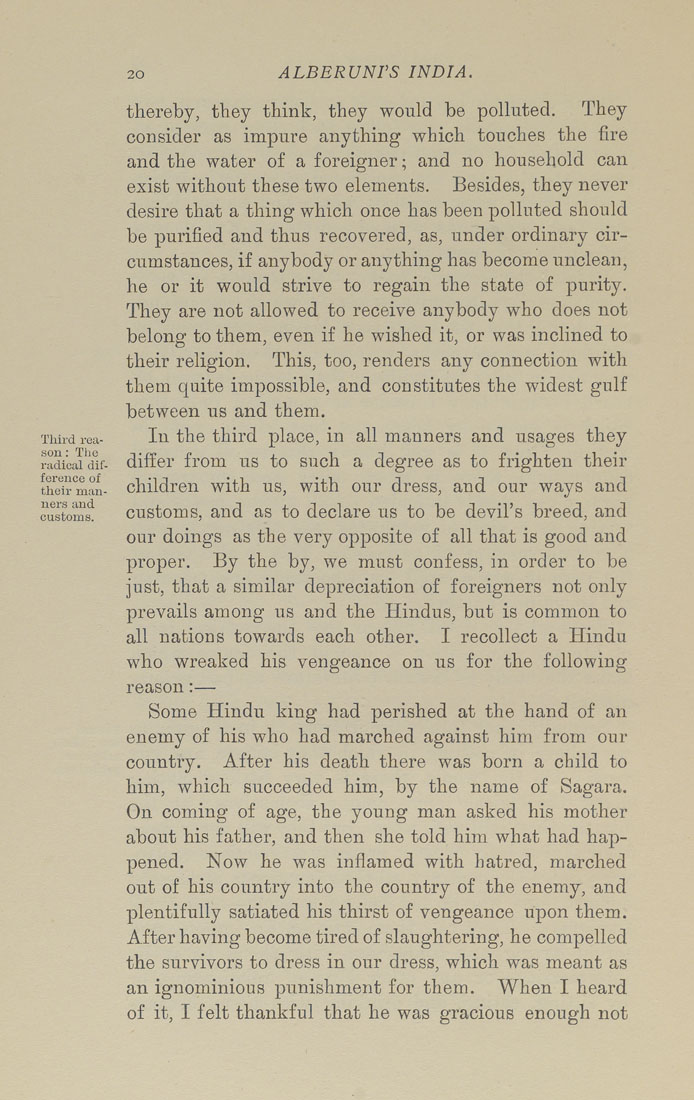Bīrūnī, Muḥammad ibn Aḥmad, Alberuni's India (v. 1)
(London : Kegan Paul, Trench, Trübner & Co., 1910.)
|
||
|
|
|
|
| Page 20 |

ALBERUNPS INDIA. Tliird rea¬ son : Tlie radical dif¬ ference of their man¬ ners and customs. thereby, they think, they would be polluted. They consider as impure anything which touches the fire and the water of a foreigner; and no household can exist without these two elements. Besides, they never desire that a thing which once has been polluted should be purified and thus recovered, as, under ordinary cir¬ cumstances, if anybody or anything has become unclean, he or it would strive to regain the state of purity. They are not allowed to receive anybody who does not belong to them, even if he wished it, or was inclined to their religion. This, too, renders any connection with them quite impossible, and constitutes the widest gulf between us and them. In the third place, in all manners and usages they differ from us to such a degree as to frighten their children with us, with our dress, and our ways and customs, and as to declare us to be devil's breed, and our doings as the very opposite of all that is good and proper. By the by, we must confess, in order to be just, that a similar depreciation of foreigners not only prevails among us and the Hindus, but is common to all nations towards each other. I recollect a Hindu who wreaked his vengeance on us for the following reason:— Some Hindu king had perished at the hand of an enemy of his who had marched against him from our country. After his death there was born a child to him, which succeeded him, by the name of Sagara. On coming of age, the young man asked his mother about his father, and then she told him what had hap¬ pened. Now he was inflamed with hatred, marched out of his country into the country of the enemy, and plentifully satiated his thirst of vengeance upon them. After having become tired of slaughtering, he compelled the survivors to dress in our dress, which was meant as an ignominious punishment for them. When I heard of it, I felt thankful that he was gracious enough not |
| Page 20 |







